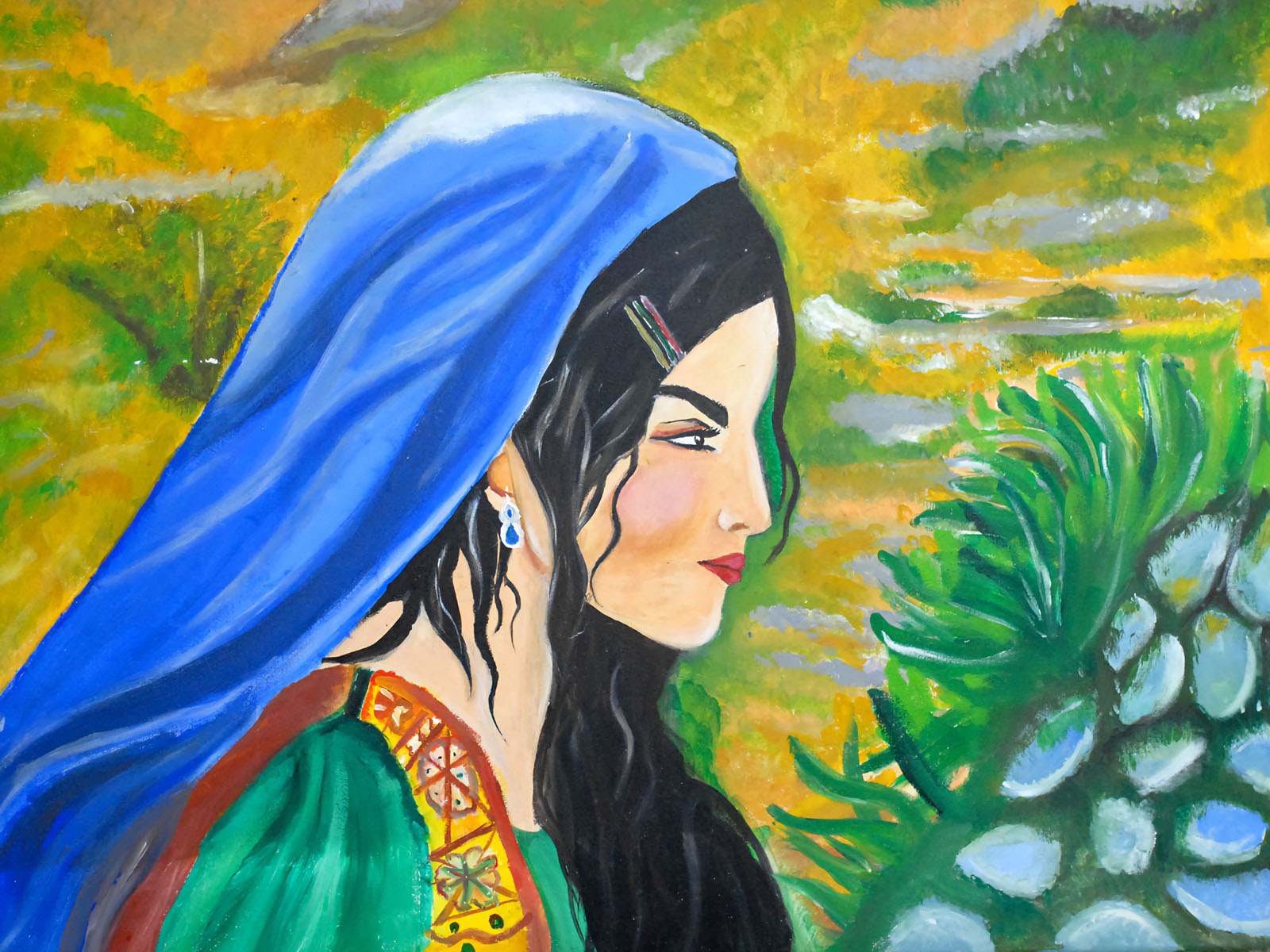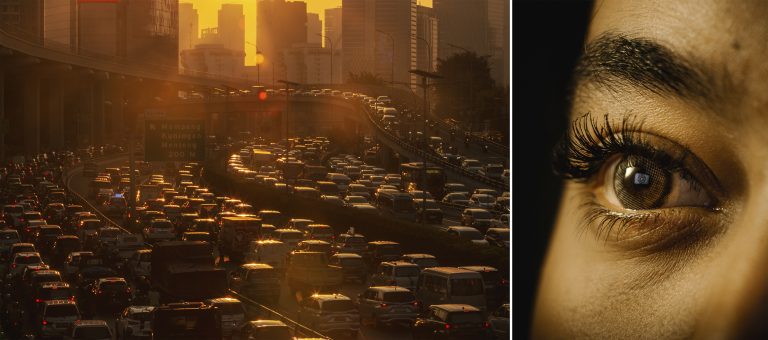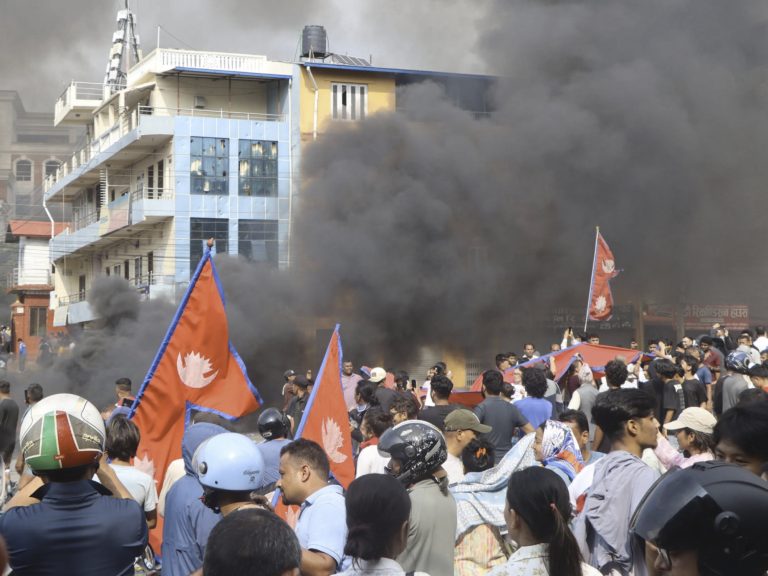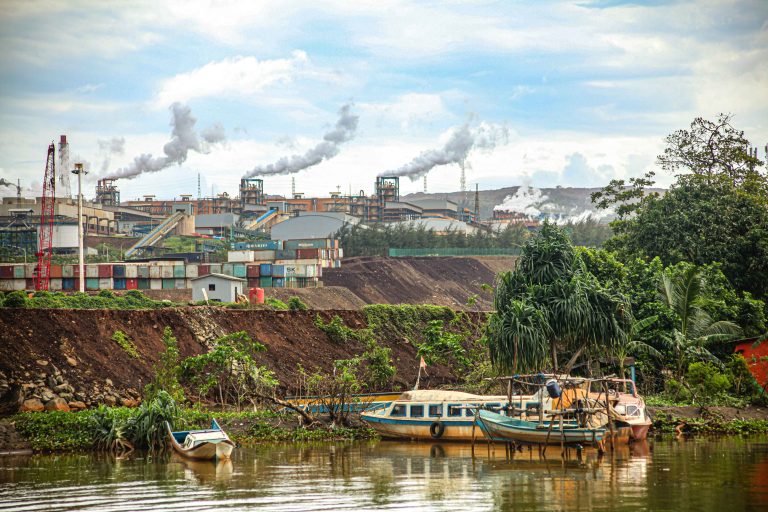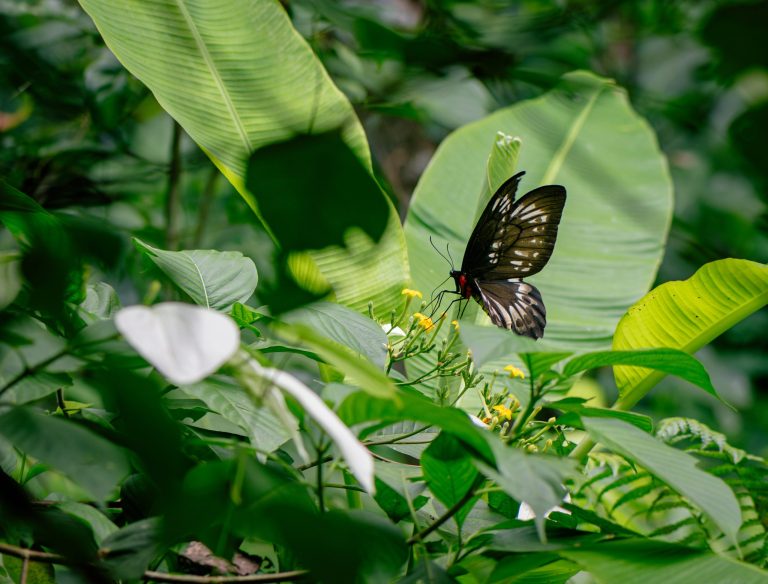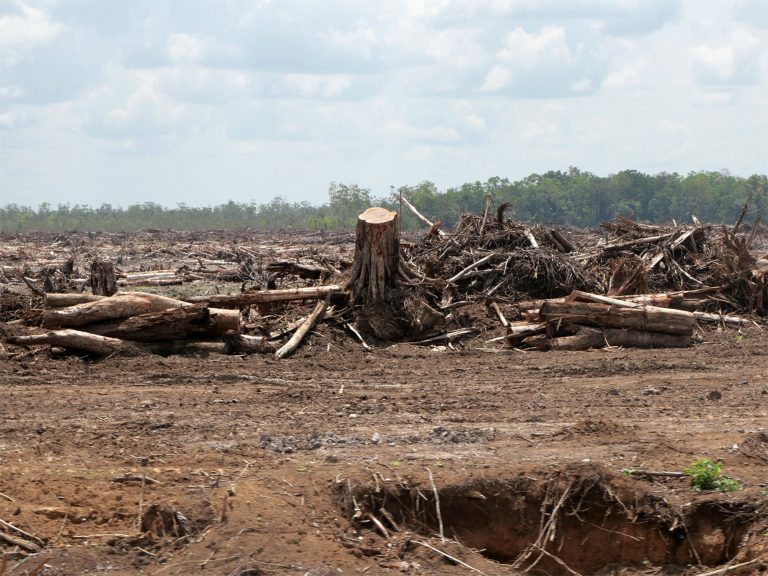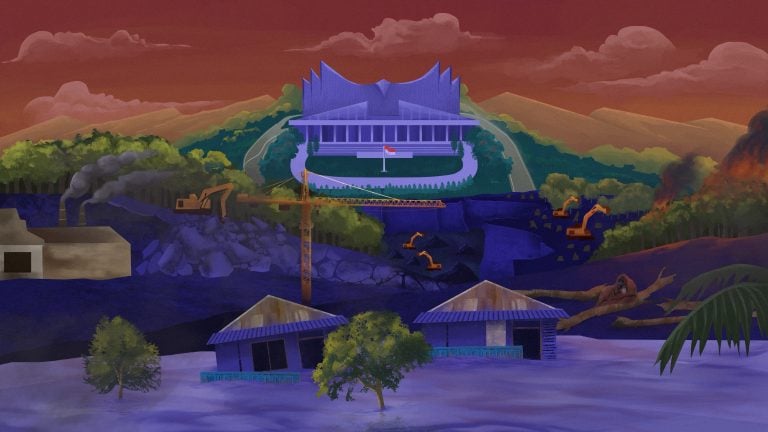Through a collection of profiles, we explore the journeys of three female Afghan refugees who have emerged as community leaders in Cisarua, reclaiming societal roles and discovering fulfilment amidst transit challenges.
Empowering Women Through Education
“Everyone says that Indonesia is not a good place for refugees to live and it is true, but for me, Indonesia has helped me find myself,” 27-year-old Afghan refugee Khatera Amiri told Project M.
While the prospect of endless transit is unnerving for many refugees, some displaced Afghan women who have been silenced and subservient in their homeland have found solace in Indonesia, discovering an unforeseen sense of fulfilment.
According to the United Nations High Commissioner for Refugees (UNHCR), in December 2023, there were 12,295 persons registered with UNHCR with 28 percent being women.
19-year-old Khatera, along with her three siblings, fled Afghanistan in 2016 after her family’s safety was compromised by the Taliban. Following a well-trodden refugee route, Khatera travelled through India and Malaysia before landing in Indonesia.
Earning its reputation as the “country of transit,” Indonesia has a longstanding tradition of providing refuge to stateless individuals requiring international protection, despite not ratifying the 1951 Convention on Refugees—a treaty outlining their rights to employment, education and housing.
As reported by The International Organisation for Migration (IOM), refugees in Indonesia typically spend nine to 10 years in limbo before receiving updates on their resettlement.
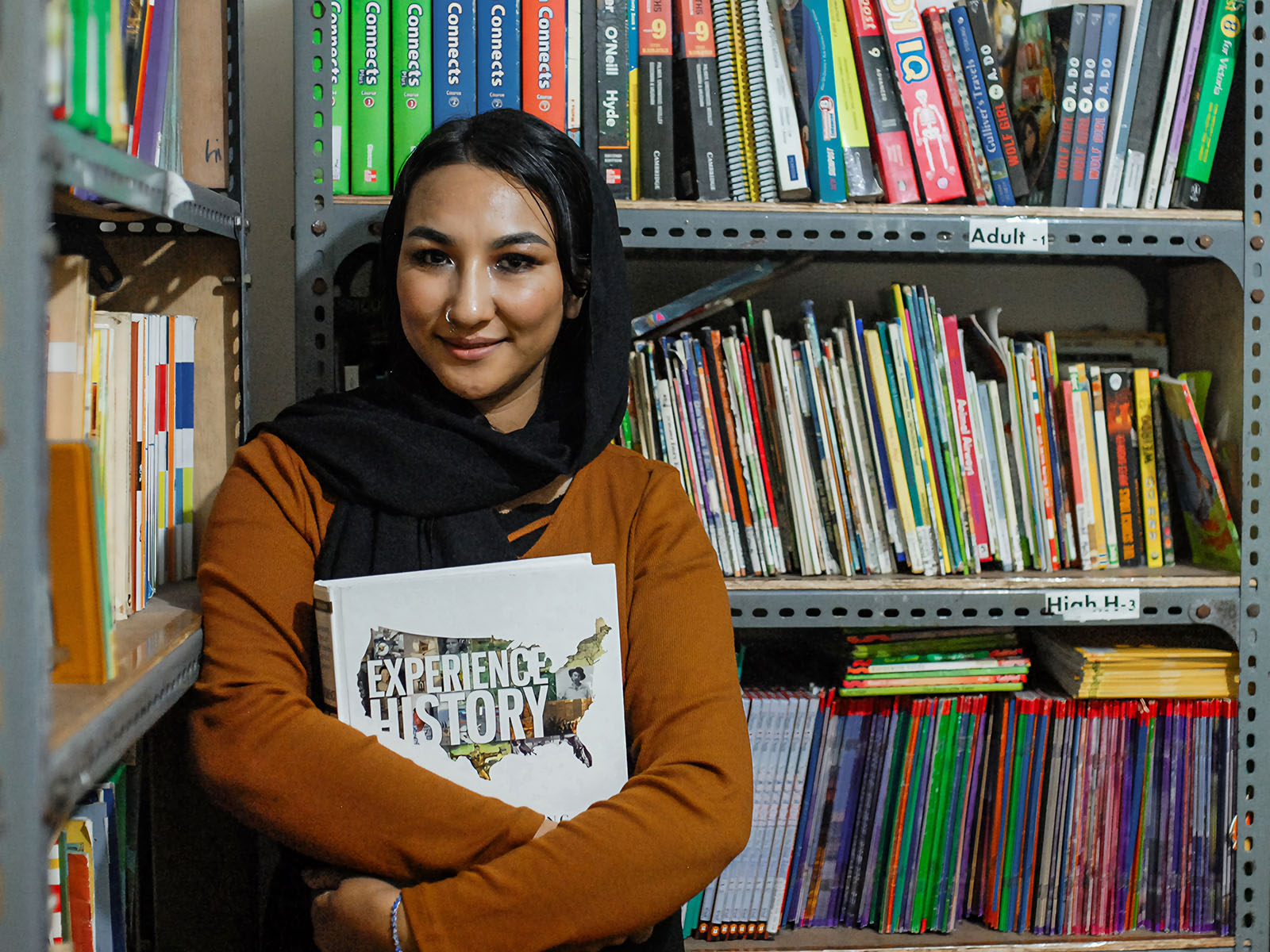
Khatera and her siblings settled in an Afghan community in Cisarua, a district located among the mountains of West Java. With the weight of parental responsibility resting on her shoulders, she independently steered her siblings through foreign terrain, prompting an abrupt transition into adulthood.
“I was so scared, every day I was faced with new experiences that were hard for me. I’d cry, because we didn’t know anyone here, we didn’t know where to find a home,” Khatera recounted.
Khatera was eager to finish high school in Afghanistan to pursue journalism, however, her aspirations were thwarted in Indonesia where she couldn’t access education or employment. As each passing day felt increasingly monotonous, she quickly realised that her dream career was intangible.
A glimmer of hope emerged when she discovered Cisarua Refugee Learning Centre (CRLC)—a refugee-led initiative established in 2014. Excited by the prospect of resuming her education, Khatera eagerly enrolled and began attending online English classes in 2016.
Khatera’s leadership skills and passion for education were acknowledged a year later in 2017 when her teachers encouraged her to take on a teaching position as a kindergarten teacher. Overcome with enthusiasm, she devoted her evenings to crafting class activities and meticulously choosing her outfit for the following day of teaching.
As Khatera embraced this new role, she found a sense of fulfilment—a sentiment she had longed for since leaving her home country. During the hours of 9 am and 5 pm, a semblance of normalcy is restored. Yet, the illusion of an ordinary life fades as the unstable reality of being a refugee and the silent battles of enduring gender-based violence (GBV) resurfaces.
When she was 15, Khatera visited a bazaar in Afghanistan where she was unsolicitedly touched by a man who promptly vanished—a distressing experience that she described as far too common among Afghan women.
Khatera fell victim to sexual harassment a second time, this time in Indonesia. In 2020, she was walking with her sister on a main road in Cisarua when a motorbike driver inappropriately disturbed them before hastily speeding away.
“I had no feeling at the time, I felt hopeless…powerless.”
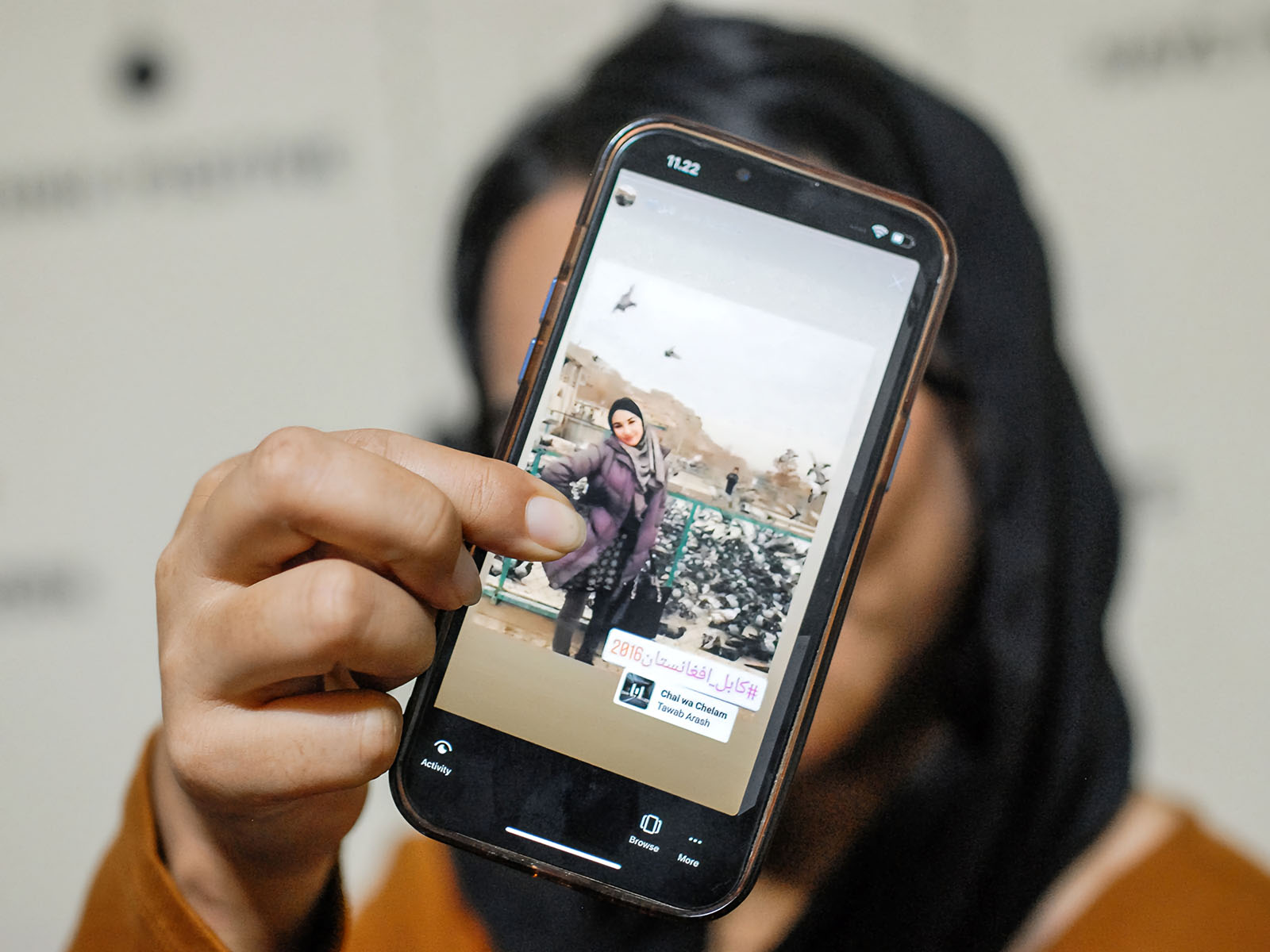
While Indonesia enacted the Sexual Violence Eradication Law in 2022, perpetrators remain largely impune, particularly in refugee camps where law enforcement is deficient.
“I ran away from this kind of situation in Afghanistan and now it’s happening here.”
When seeking assistance from the UNHCR, Khatera recounted that the representative was glancing around, appearing disinterested and not attentive to her words.
“I couldn’t prove anything, so I had to be silent. I just zipped my mouth and didn’t say anything.”
Nimo Adam Ahmed, co-founder of The Sisterhood, a community advocating for female refugees in Indonesia, says that many Sisterhood members have sought assistance from the UNHCR for GBV cases. However, as the majority of interpreters are male, victims have often felt uncomfortable and misunderstood, leading to their reluctance to speak out.
According to Emily Bojovic, Senior Protection Officer in UNHCR’s Bureau for Asia and the Pacific, gender-based violence cases within refugee communities in Indonesia can be reported through three channels, one of which is the Report to Refugee Representatives (RRs). All RRs receive regular training on GBV prevention and response, including the principles of “do no harm” and “survivor-centred approach principles.”
Khatera assumed the role of General Education Diploma (GED) Manager at CRLC in 2021 where she collaborated online with teachers from Australia, culminating in her promotion as School Manager in 2023.
As Khatera started to take on more responsibility at CRLC, her innate passion for educating and advocating for women was ignited.
“It’s happening, it’s happening, the girls are in power. I feel empowered and it’s the best feeling,” Khatera proudly vocalised.
Since becoming School Manager, Khatera’s aspirations of becoming a journalist have shifted, finding a newfound passion for empowering displaced women and fostering community engagement.
“Every effort makes a difference, even if I help one woman, it’s a good start.”
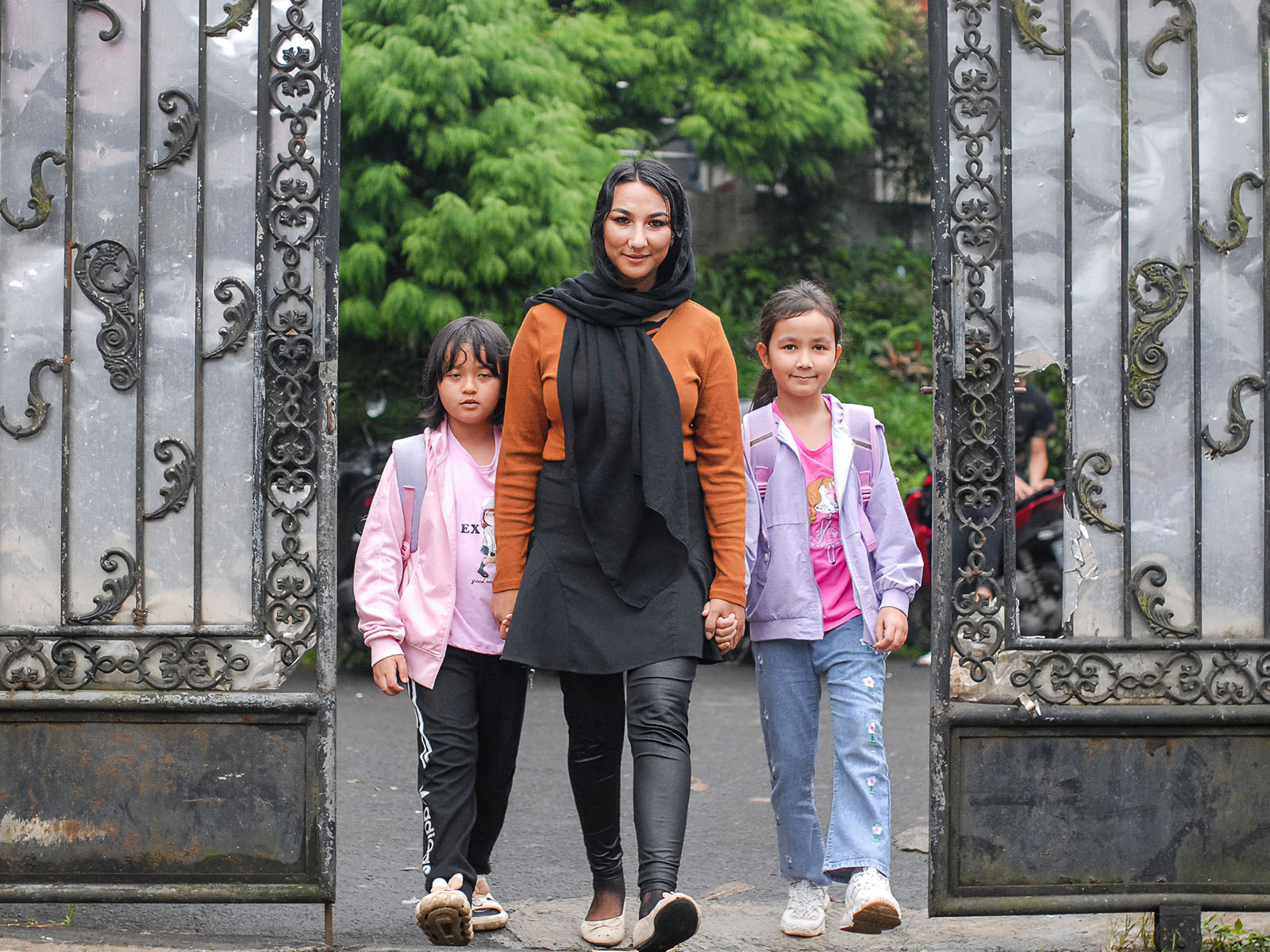
Co-founder of CRLC, Muzafar Ali said, “Women are playing a big part in this marginalized community. I always say that these women who took the risk are the real heroes of CRLC.”
When CRLC was established, men were initially approached to take on teaching roles. However, when they declined, fearing it would jeopardise their refugee status, female refugees bravely embraced the risk, becoming the backbone of CRLC and breaking the stigma of women occupying secondary roles in society.
While the date is yet to be confirmed, Khatera is set to relocate to Canada, where she hopes to pursue business studies to be a “businesswoman for women.”
Despite the challenges that Khatera continues to navigate every day, she says that Indonesia has given her the opportunity to find herself and her purpose in empowering women.
“I want women to see that they are powerful. They can do whatever they want…lead a country, a city, a world, a school.”
Defying Gender-Based Discrimination, One Kick at a Time
Meena Asaadi’s stature may be small, but her courage, grit and determination far surpass any measure of her height—nor underestimate the power of her sidekick.
A lifelong refugee, Meena fled Afghanistan as a child with her mother, seeking refuge in Pakistan when the Taliban seized power in 1996.
Representing Pakistan in the South Asian Games in 2010, Meena took home three medals along with prize funds, adding to her notable collection of 38 medals earned from tournaments held across Afghanistan, India, Bangladesh and Pakistan.
Fueled by a passion for empowering young girls through martial arts, Meena used the prize funds to open up a karate school in Afghanistan after returning in 2011.
Breaking traditional gender norms in Islamic culture, her classes were not only co-ed but also welcomed girls to shed their scarves—an audacious move that challenged conservative forces, including extremist Sunni groups and “men in mosques.”
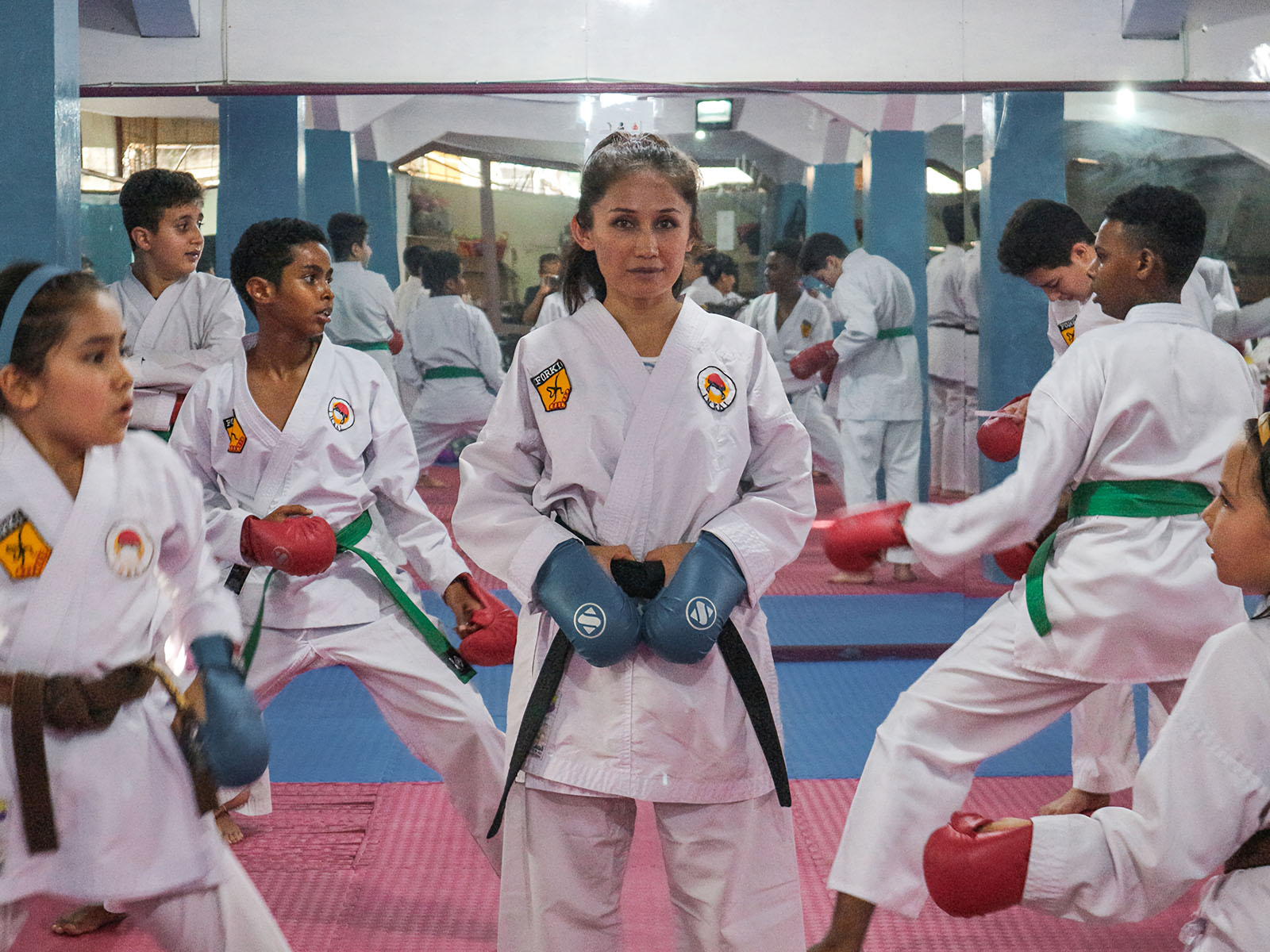
Meena shared that identifying as a Hazara Muslim, an ethnic minority in Afghanistan vulnerable to violence by extremist groups, increased her susceptibility as a target.
“I had many difficulties, many challenges, but I opened this dojo for girls. Why should I close this club because of one threat from this man?” Meena declared, undeterred from the threats.
But assailants smashed the windows of her dojo and assaulted Meena during a routine journey between her club and home. In a moment that no martial artist wishes to confront, she was compelled to employ her self-defence skills. Following the encounter, the assailants threatened to locate and harm her.
“I was all the time in my head, very stressed that one day he would shoot me or beat me.”
Fearing persecution, Meena fled Afghanistan alongside her husband, this time seeking refuge in Indonesia in 2015.
Leaving behind her dojo in Afghanistan, Meena encountered a common struggle faced by refugees in Indonesia—finding purpose in transit. Determined to continue sharing the art of karate within the community, she mustered up the courage to start a new karate venture, Cisarua Refugee Shotokan Karate Club in 2016.
Starting with just three students in a dimly lit space atop a trophy store, Meena now amasses 70 students across her classes. She has breathed new life into the dojo through the support of the Cisarua Learning Charity, transforming it into a karate arena furnished with dojo mats and punching bags.
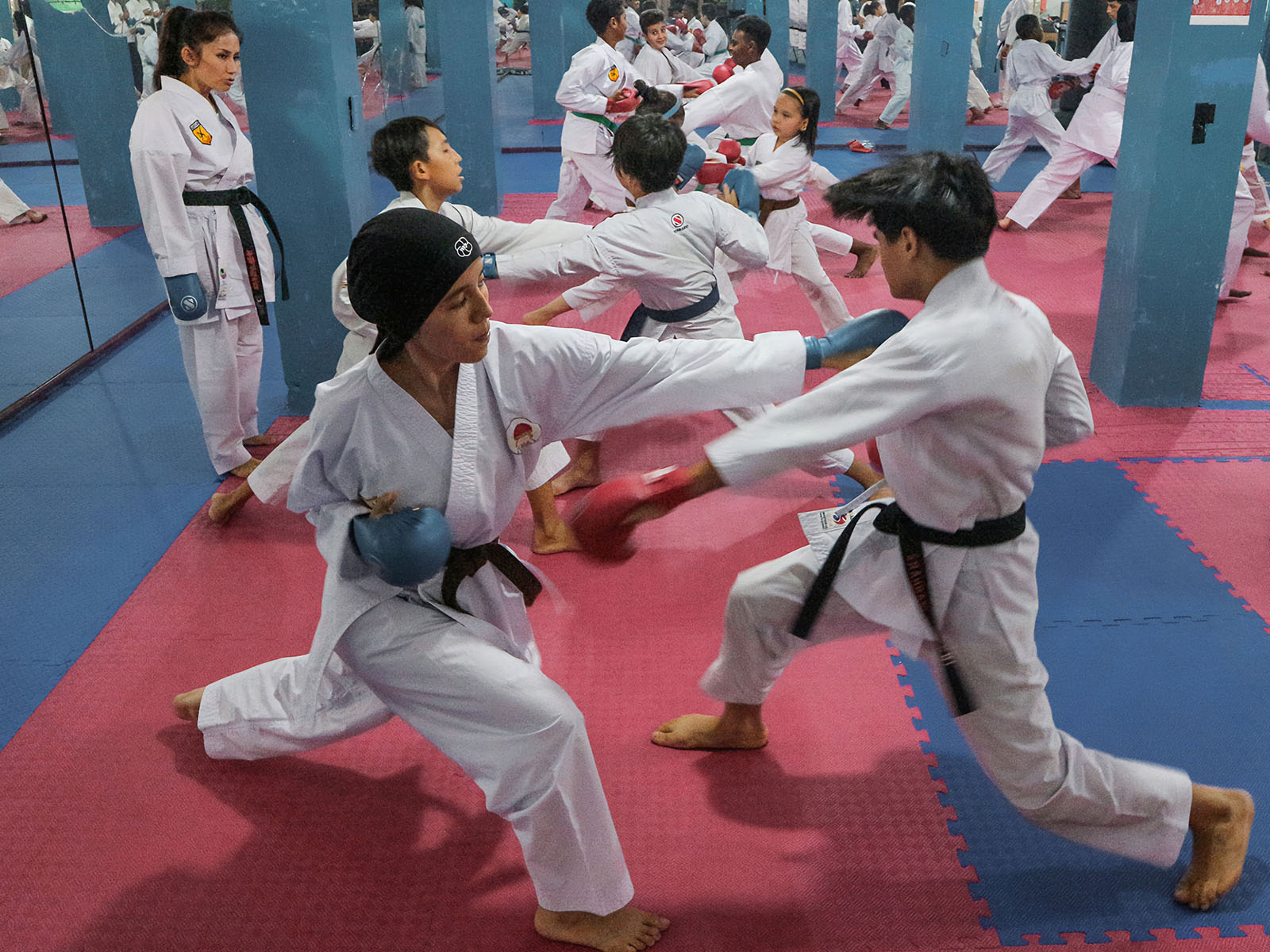
While Meena experiences a sense of relief in the absence of violence, the enduring challenges of being a refugee persist.
“Physically I feel safe, but mentally I don’t. We still don’t have a place to call home. My daughter regularly asks, ‘How long should we stay here?”
Many refugees in Cisarua live independently, seeking financial assistance from Church World Service and Catholic Relief Service. However, Meena says that the end of the month is always a difficult time for her family with the donations barely covering rent, leaving other expenses unaccounted for.
In 2023, there were 1,273 vulnerable refugees from 430 households that received monthly subsistence allowances as reported by the UNHCR.
Behind the formidable roundhouse kicks and upper hooks, Meena’s students experience anxiety, stress and depression. She says that her teaching goes beyond a physical outlet, it offers a mental respite where students can openly discuss their challenges. During the two-hour sessions, held three times a week, her students find temporary relief from the burdens of their unconventional childhood.
“I have to continue, I have worked hard to be very resilient,” Meena told Project M, recognising that her enduring pain has been channelled to empower her students.
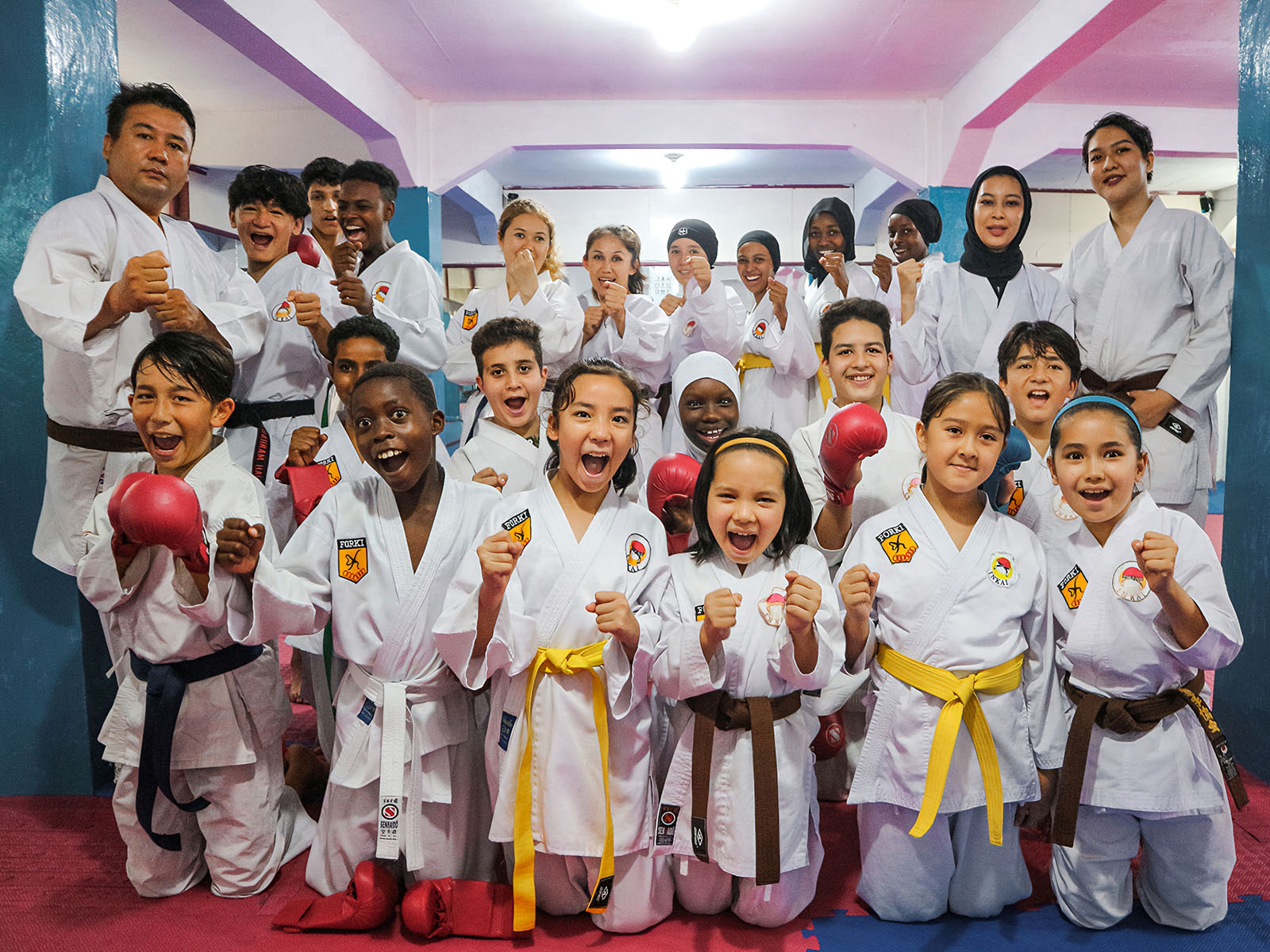
Acknowledging that many female refugees are inactive, particularly those from Afghanistan who have been prohibited from engaging in any sports by the Taliban regime, Meena launched a karate fitness program for women in March 2023.
Meena aspires to become a karate judge upon settling in her third country, but as she remains in transit, she diligently instils her fierce attitude in her students who are going on to participate in competitions in Indonesia.
Shifting Patriarchal Mindsets
“I felt really sad because I really didn’t want to be out of my homeland. I was getting ready to start school, so I was really excited about that. I said to my mom, ‘Please, let’s just not go.’”
Robbed of her childhood, Maryam Salehi was six years old when she fled Kabul, Afghanistan for Indonesia in 2013. A year earlier, her father escaped due to increasing peril, threats and blackmail.
“I felt like a total, complete stranger to everyone, the house, the weather, the people, even the cars, everything was a whole new world and I felt lost. I was so little,” Maryam said, recounting her early days in Cisarua.
Wary of their safety and acceptance by the local people, Maryam and her family found themselves restricted to the confines of their home for over a year, limiting their activities to eating and sleeping. Despite being part of a family of 10, Maryam experienced a great sense of loneliness and estrangement from the local community.
“I would see local people playing outside and I would watch them from behind the window, thinking, if only I could play with them. I felt really lonely and left out of everything in this world.”
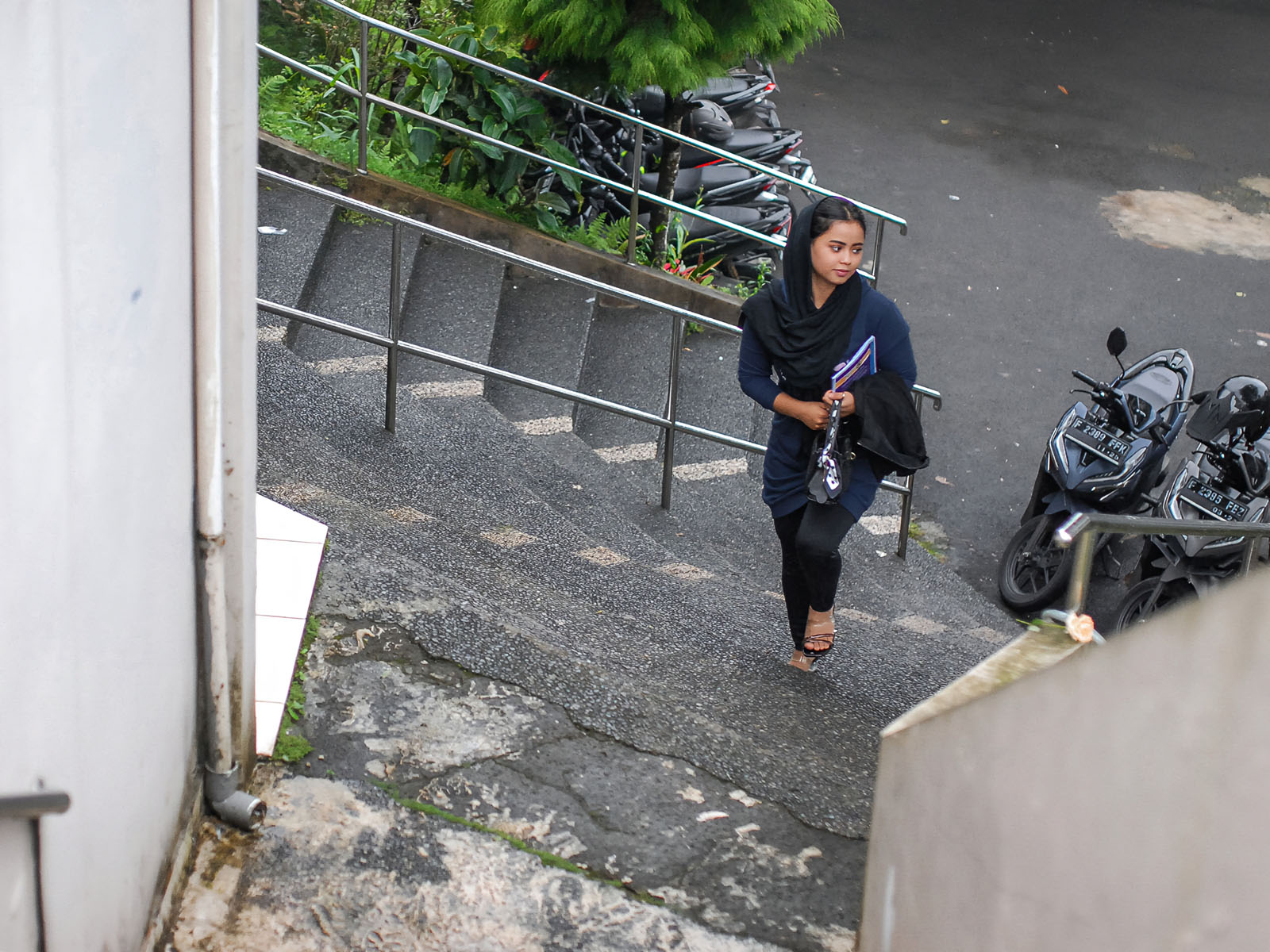
A year later, Maryam and her family discovered Cisarua Refugee Learning Centre (CRLC). While her parents were initially apprehensive, Maryam was soon enrolled and began learning the ABCs at the age of seven. Coming from an education system that forbade mixed-gender classes, Maryam embraced having male counterparts and female teachers.
“This is the start of change… and it was really empowering and motivating. After [seeing women in charge], I wanted to study hard to bring change into my community, my people in Afghanistan.”
As a child in Afghanistan, Maryam, mischievous by nature, would sneak out to play with her brothers without a scarf, often facing reprimands from male shopkeepers, saying girls shouldn’t play outside with boys and without scarves.
“It would make me really sad because what is the difference between me and my brother? If he could go out and play, why wasn’t I allowed? It really made me think differently about myself,” Maryam told Project M.
Now 17 years old, Maryam is a teacher at CRLC under the management of Khatera. Maryam’s mother takes great pride in her societal contributions, often telling Maryam about a time in her childhood where females in Afghanistan could attend school, wear skirts and choose whether to wear a hijab.
Her father did not initially condone the idea of teaching and instead adhered to a traditional mindset that assigns women to domestic duties. However, observing the integral role women play within the refugee community gradually shifted his perspective.
“He said go teach, you have this ability, why hide it if you can use it,” Maryam’s father said.
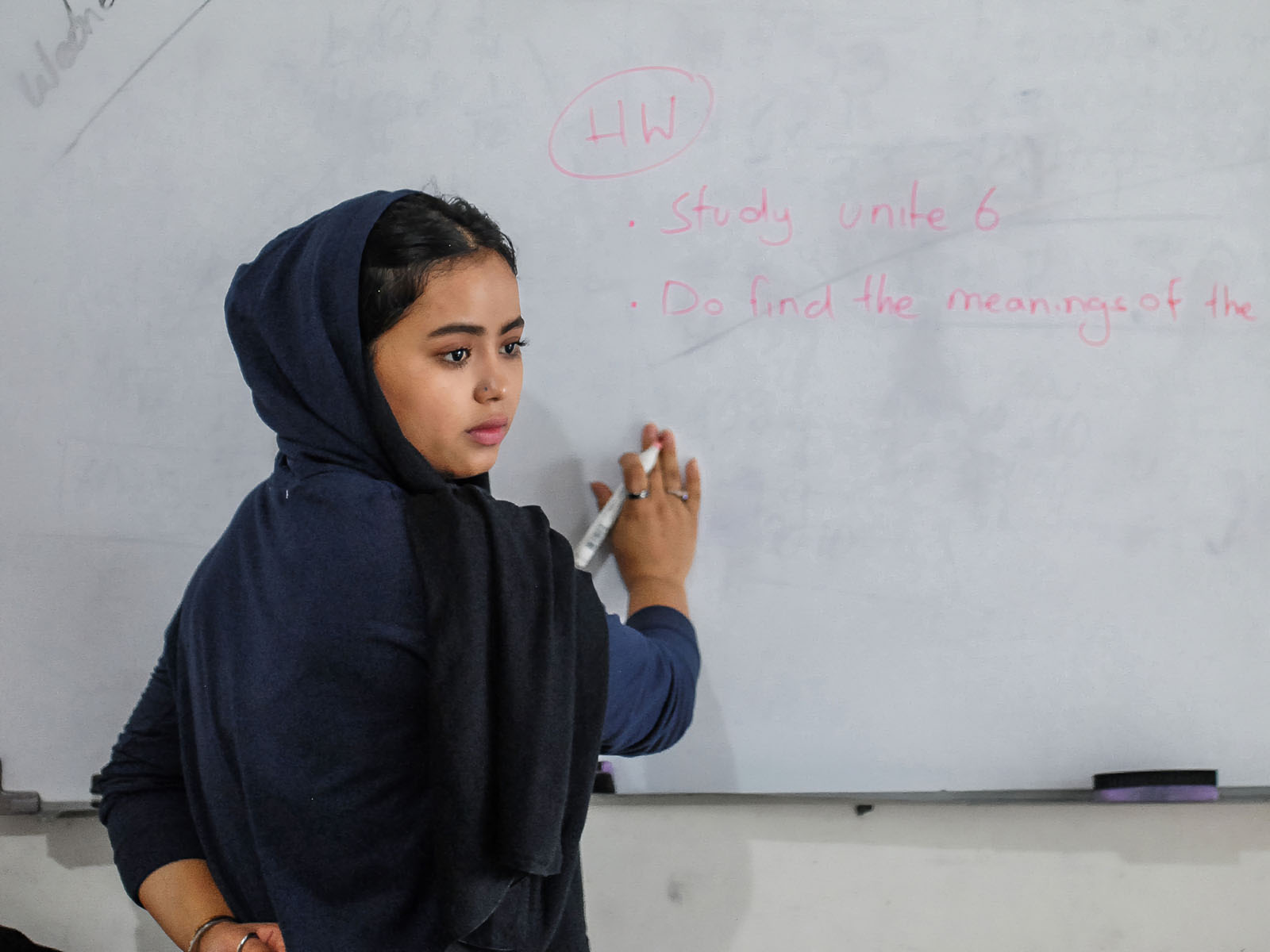
Nina Burridge, Honorary Associate Professor at the University of Technology Sydney conducts English workshops at CRLC. She says, “The capacity to walk freely, to not be supervised, is the most empowering aspect of their lives. The transformative aspect is that they are not dependent on someone else. Their future is their own.”
After Maryam’s father sold his local bakery in Afghanistan to fund their escape, financial issues posed a significant threat to Maryam and her sisters in accessing menstrual products. With uncertainty looming over when they would receive any funds, wearing pads for extended periods, surpassing the recommended duration of two to three hours, was the only option.
Maryam’s experience is common among female refugees, with Khatera sharing the same experience. The UNHCR’s 2019 survey revealed that, on average, only 55% of women’s requirements for menstrual products were fulfilled.
Emily Bojovic, Senior Protection Officer in UNHCR’s Bureau for Asia and the Pacific says, “UNHCR and our implementing partner, Catholic Relief Services (CRS), distribute hygiene kits monthly to female refugees who are receiving Monthly Subsistence Allowance (MSA) and are 11-55 years old.”
“Statelessness and displacement have a huge effect on the menstrual practices of women and girls. In emergency situations, women and girls are faced with a huge number of challenges. These are often overlooked by humanitarian organisations, leading women to take up unsanitary and unhygienic practices,” according to Global One, a UK-based Muslim women-led international development NGO.
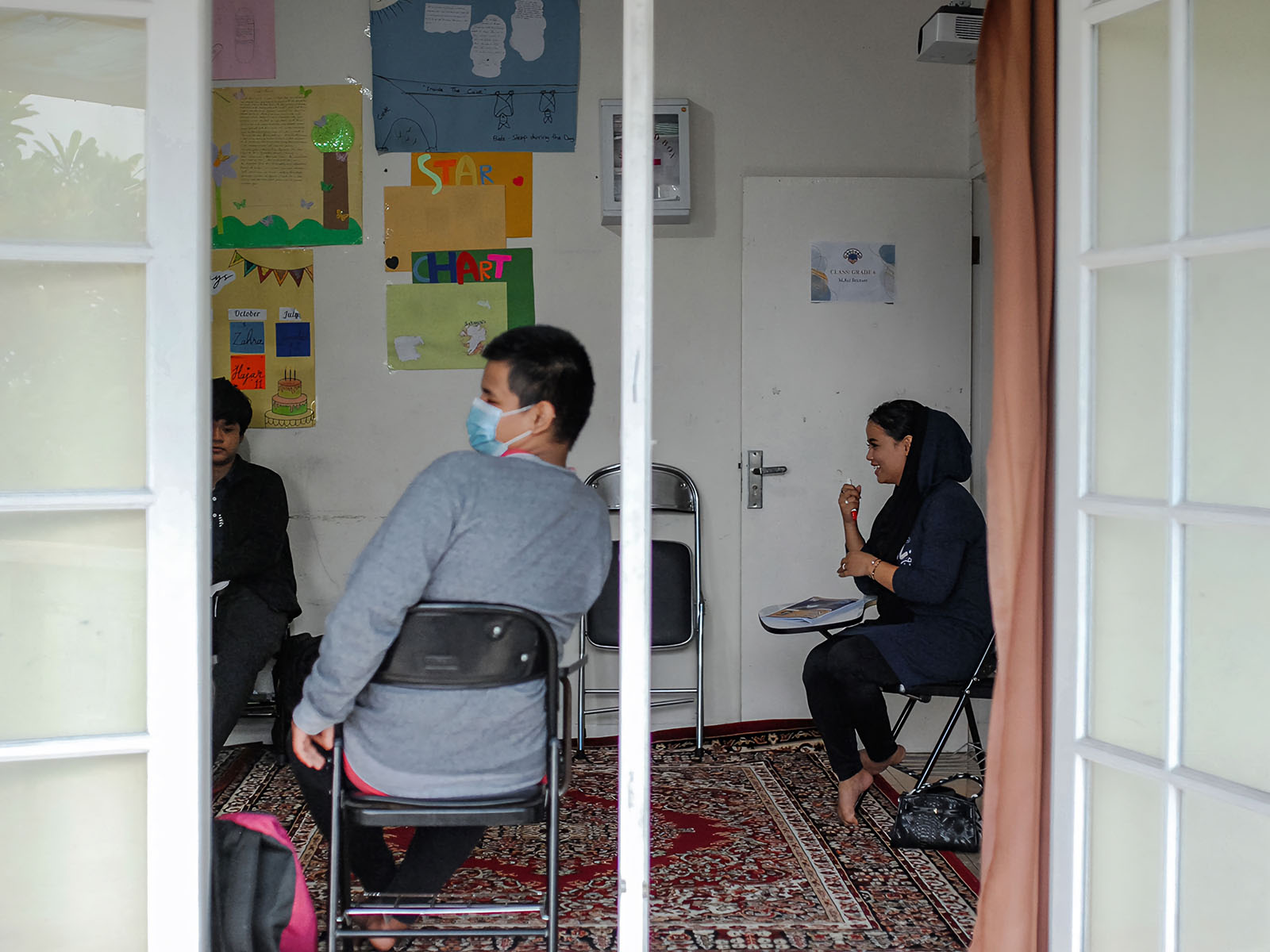
While she hopes to return to her home country to dismantle patriarchal mindsets and be the help for women that she once needed, Maryam said, “There’s this whole part of me left in my homeland, and if ever there’s a day that I go back, I might not be able to take that piece of me back,” due to her childhood trauma.
“When I was a kid in Afghanistan, I remember we slept on the carpet. We would gather all the pillows and blankets, make them into a small bed, and then I would sit on it, and think, ‘One day I will sleep in a big cosy bed. I dreamed of having my own home.”
When she goes to her third country, Maryam hopes to become a real estate agent—a career grounded in her longing to have her own house, a dream that living as a refugee has yet to fulfil. In the meantime, Maryam is also completing her GED credential—a high school equivalent diploma, allowing her to undertake tertiary studies.
Maryam wishes to impart a message to silenced women: “It’s not shameful being a woman, it’s a blessing. They should be proud of who they are, and even if people deny them, they should value themselves, they shouldn’t care about people’s words, no matter how much those words hurt. Their heads should be held high and always be proud of being a woman.”
Editor: Evi Mariani
Claudia Goundar is enrolled at University of Melbourne (UniMelb), pursuing her degree in Arts, majoring in Media and Communications and Italian Studies. She was an ACICIS student doing an internship in Project Multatuli in early 2024.

